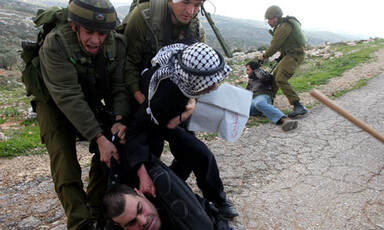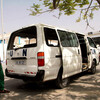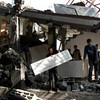
In Gaza, chaos versus democracy and democracy versus chaos
Gaza Strip, Palestine 9 May 2007
“Perhaps some youth are trying to imitate what’s going in the outside world; we don’t have solid information on the existence of such groups,” said Palestinian Interior Ministry spokesman Khaled Abu Helal in response to the recent attack on a UN-operated school in Rafah City. Early this week, a group of militants opened fire on a celebration at a UN-operated elementary school in the southern Gaza Strip city of Rafah, having warned ahead of time that the event was “indecent.” Read more about In Gaza, chaos versus democracy and democracy versus chaos








